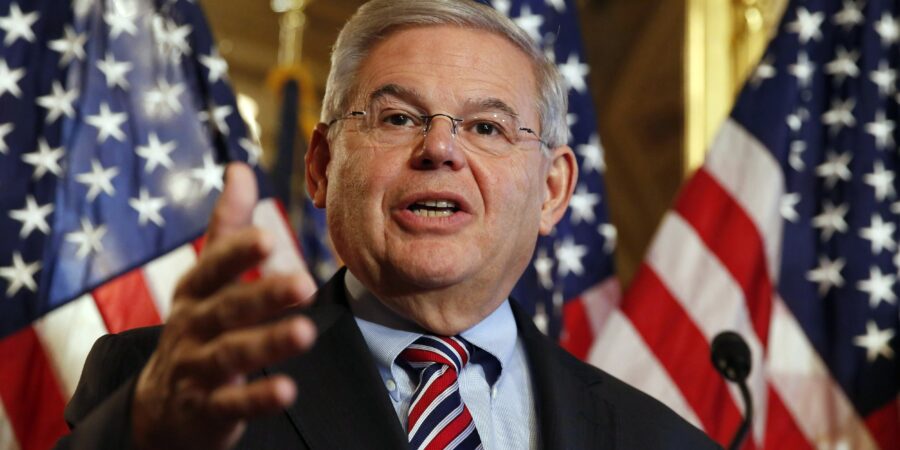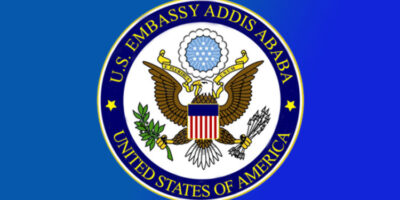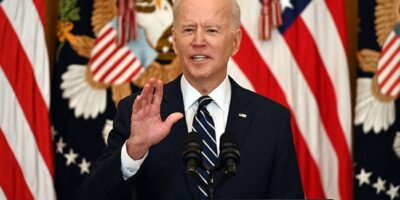Ethiopia: The Biden administration must put its food down

By Bob Menendez
A US Senator. He is a democrat from New Jersey
Serves as Chairman of the Senate Foreign Relations
By Gregory Meeks
A democrat representative from New York
He serves as the Chairman of the House Foreign Affairs Committee
When Prime Minister Ahmed Abiy came into power on a tide of popular protests, we shared the optimism of many in the international community that Ethiopia could successfully transition to democracy. Sadly, those hopes have been dashed.
The brutal war in Tigray, pitting the federal government, Eritrea, and other allies against the Tigray People’s Liberation Front (TPLF) and affiliated militia, is the most vivid illustration of the tragedy now unfolding across the country.
Nearly seven months into the conflict, the human cost continues to grow. Thousands of civilians have been injured or killed and there are increasing reports of extra-judicial killings, massacres, sexual and gender-based violence, forced displacement, and other human rights violations.
Children are falling prey to exploitation and detention. Health centers, schools, universities, and refugee camps have been looted or destroyed. Food systems – historically fragile in this corner of Africa – have been so badly disrupted that famine looms large.
This carnage can no longer be explained away as an inadvertent byproduct of war. What we are seeing appears to be systematic and intentional, part and parcel of a coordinated campaign of destruction that could amount to war crimes and crimes against humanity.
Less noticed by the international community has been the suffering in Ethiopia’s other regions. Violence against Amhara and Oromo civilians – the country’s two largest ethnic groups – is also widespread. Smaller ethnic groups around the country have similarly been victimized by long-standing inter-communal tensions. But the conduct of non-state armed groups and the government’s security apparatus – fractured and unaccountable – has directly contributed to the scale and ferocity of that suffering.
Ethiopia’s upcoming elections
Against this grim backdrop, few believe Ethiopia’s upcoming national elections stand a real chance of being free or fair. The logistical challenges that often come with widespread violence will prevent large swaths of the country from voting. Critics of the prime minister and their supporters remain imprisoned while the government routinely flouts their rights and due process.
Key opposition parties have had their operations so severely curtailed that they have been forced to drop out of the race altogether. Furthermore, media space and room for public discourse has rapidly closed, creating an insidious climate of fear and self-censorship.
Prime Minister Abiy and his ruling Prosperity Party have made it clear they intend to continue working from the same authoritarian playbook as their predecessors, squandering Ethiopians’ hopes for the country’s first-ever genuinely democratic elections.
US involvement
Meanwhile, the Biden administration has mobilized its diplomatic tools to meet the moment. The President, Vice President, Secretary of State, and National Security Advisor have engaged at the highest levels with Ethiopian and other regional counterparts to insist on a political solution to the Tigray conflict.
The administration has also committed $305m in new funding for humanitarian relief efforts. UN Ambassador Linda Thomas-Greenfield has doggedly worked to raise the profile of the crisis. And the White House Special Envoy for the Horn of Africa recently travelled to the region to enhance the administration’s diplomatic efforts.
Unfortunately, for all these efforts, little has changed and conflict rages on. The Ethiopian government continues to stubbornly pursue coercive solutions, despite clear evidence that they will not work. Now is the time for the US and its allies to act decisively to change the regime’s political calculus. The Biden administration’s recent announcement of visa bans on those perpetuating the suffering in Tigray is a good start, but more robust measures are needed.
The first order of business is to secure the immediate withdrawal of Eritrean forces from Ethiopia. President Biden must lead like-minded countries in seeking an international arms embargo on the Eritrean regime.
The Biden administration should also target Eritrean officials responsible for human rights violations with economic sanctions. Targeted economic sanctions must also be applied to those who conduct any business with the regime that facilitates the carnage in Tigray.
Similar measures must be taken against Ethiopian actors. The administration must vote to oppose assistance from the international financial institutions that would flow to the Ethiopian government.
Proposals for programs that provide direct benefit to the population – areas such as health and education – should be exempt, but these institutions should not conduct business as usual while atrocities in Tigray and other regions of Ethiopia unfold.
We must also impose targeted economic sanctions on those committing, orchestrating, or failing to stop human rights abuses, including government officials, members of the TPLF, and other armed groups. In addition, an arms embargo on Ethiopia – despite the complications it may bring – should not be off the table.
Finally, the US must continue to partner with African leaders and work with multilateral institutions in the region and beyond to ensure credible, transparent accountability for human rights abuses. The AU and others should also play an important role in helping facilitate a national dialogue.
Bottom line
Ethiopia has long held a prominent and critical role in a region vital to US interests, and its government will no doubt object to these proposals. But as has become all too evident, failure to act will cost innocent lives, cause needless suffering, and damage our credibility as champions for human rights.
Our interests cannot be met through a partnership with a failed state. A fraught US-Ethiopia relationship is a far lower price to pay than that of state collapse. The prudent course is clear. In support of a peaceful, prosperous, democratic Ethiopia, America must show resolve.
- ለአማራ ፋኖ የተዘጋጀ የወታደር ማሰልጠኛ መመሪያ - April 21, 2022
- የአሜሪካ መንግሥት በኢትዮጵያ የሚገኙ ዜጎቹ በኢትዮጵያ ላሉና ወደ ኢትዮጵያ ለመጓዝ ላቀዱ ዜጎቹ የጉዞ ማስጠንቀቂያ አወጣ - November 2, 2021
- Ethiopia: The Biden administration must put its food down - May 27, 2021










Comments are Closed